Visiting Latvia: 5 Things to Know Before You Go
Arriving in Latvia, Kate O’Malley never expected to be so captivated by this small, northern European country on the Baltic sea. She shares what Latvia is like and what makes it worth visiting.
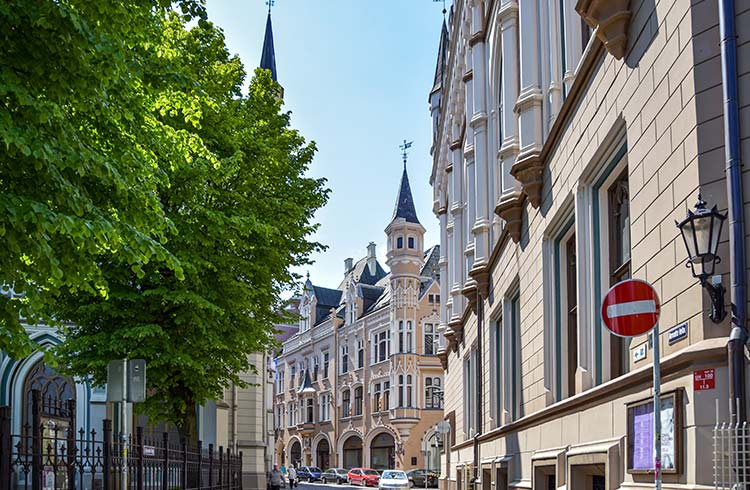 Photo © Kate O'Malley
Photo © Kate O'Malley
I admit I had a preconceived idea of Latvia, expecting a charmless, even drab country. Instead, I discovered elegant cities, vast expanses of pristine wilderness and stunning white sand beaches, ultimately wishing I could stay longer in this small, northern European nation on the Baltic sea. One week in Latvia was certainly not long enough. Here's what to know before you visit, and tips on what to see and do.
1. Getting to Latvia is easier than you think
I had always thought of the Baltic States (Estonia, Lithuania, and Latvia) as an isolated group of countries in the furthest reaches of Europe.
Given the poor transport connections I have experienced between many Eastern European countries (primarily the Balkans), Latvia is surprisingly well connected with modern, efficient, and budget-friendly transport options beyond the international airport.
For as little as US $16, each of the Baltic States capitals can be reached from Latvia in a little over four hours on the luxury bus service, The Lux Express.
The Lux Express also has budget bus services from Riga, Latvia's capital city, to Warsaw (Poland). There are also very affordable overnight sleeper trains. These connections, many of which are direct, offer a great experience as an alternative to flying and without the cost and hassle of airline luggage allowances.
This makes Latvia an excellent gateway for exploring the Baltic region as a whole.
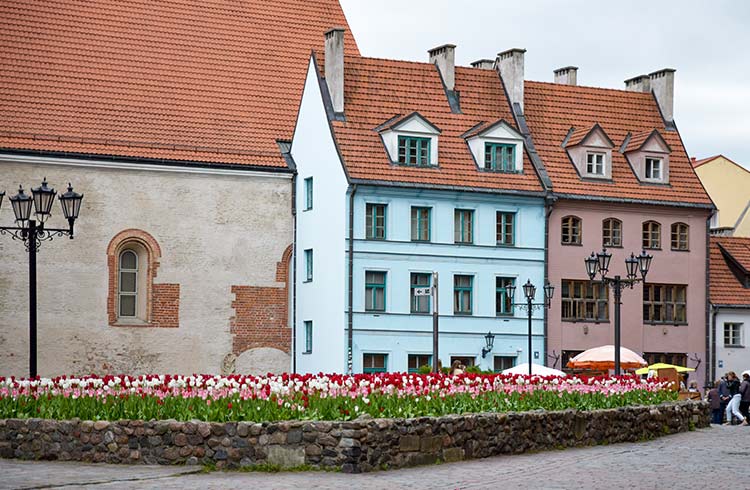
Simple and flexible travel insurance
You can buy at home or while traveling, and claim online from anywhere in the world. With 150+ adventure activities covered and 24/7 emergency assistance.
Get a quote2. The beaches are stunning
Latvia's coastline is more than 300mi (500km) long, with some of the most beautiful and interesting beaches in Europe. Stretches of secluded white sand beaches flanked by hauntingly beautiful pine forests line the Baltic coast.
The seaside town of Jūrmala is 30 minutes' drive from Riga, and is famous for its beautiful beaches and a unique architectural blend of 19th-century wooden houses and notable Soviet-era buildings such as Dubulti Station and the concrete monolith, the Ķemeri Sanatorium.
Around three hours' drive from Riga, on the west coast of Latvia, is the coastal region of Kurzeme. During the Soviet era, the coast was a heavily guarded border, mostly closed to development, leaving Latvia with miles of astonishing natural beauty along the isolated and rugged coastline.
A few coastal towns dot the coastal region — the most prominent, the 1.8mi (3km) Liepāja Seaside Park, a Blue Flag beach and one of the largest forested parks in Latvia.
Twenty minutes up the coast, the isolated shores of Karosta offer more than natural attractions. The Northern Forts are a series of abandoned bunkers along the Baltic Coast. Once part of the Naval Port’s defenses, much of the base was deemed redundant and destroyed by Tsar Nicholas II in 1908. The bunkers held strong despite efforts to blow them up.
Exploring the ruins, it’s ironic that, 100 years on, as the bunkers begin to collapse and slide into the sea like icebergs calving, they are starting to pique the interest of travelers to Latvia.
Further up the coast, 12.45mi (20km) from the quaint fishing village of Pāvilosta, are the Jurkalne Bluffs, a series of rounded cliffs.
One of the most beautiful beaches on the Latvian coast, Jurkalne (which translates to "Sea Mountain") has the steepest coast in the country. In places, the bluffs reach up to 65.6ft (20m).
The small town of Jurkalne attracts paragliders and kite surfers, thanks to a combination of strong winds and high dunes, but the long stretch of beach is often empty.
3. Latvian people are friendly
The people of many former Soviet countries have a reputation for being stony-faced or even downright rude. But Latvians – while not overtly gregarious – are very friendly.
Nearly all Latvians speak three languages well. In addition to their native tongue, Russian and English are widely spoken, even in the more remote areas.
If you need assistance, ask! Most Latvians will gladly assist, and many will go the extra mile to showcase Latvia's hospitable side. Perhaps this is why we are so charmed with Latvia.
Sheltering from a sudden downpour, a group of locals wave and gladly share their table at a restaurant while we wait out the rain.
I also experienced the hospitality of a young Latvian man I met at a food festival. Appalled I hadn't tried Latvia's national drink black bablsam (a herbal liqueur produced since 1700), he left his party of friends to escort me to buy a small bottle.
These gestures, small as they may be, shape my memory of Latvia.
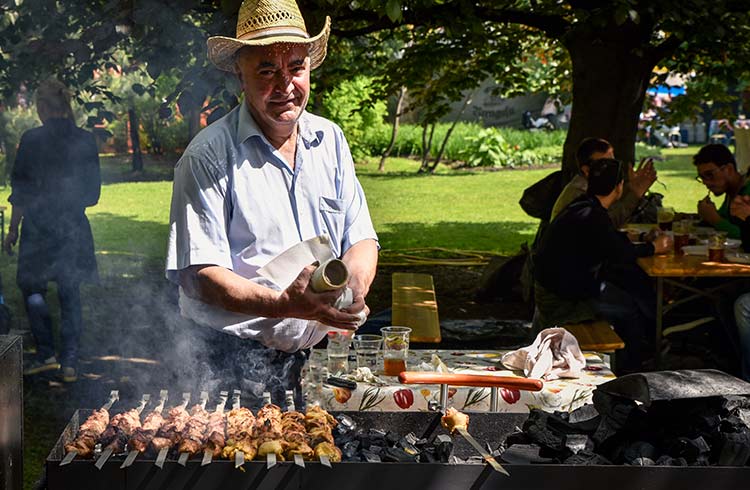
4. Latvian food is distinctive (especially the rye bread)
At the crossroads of Scandinavia and Eastern Europe, Latvia's food scene is influenced by neighboring countries such as Sweden, Denmark, Finland, Russia, Poland, Germany, and obviously, Latvia's Baltic sisters – Lithuania and Estonia.
Hearty meat dishes feature heavily on the Latvian menu, as does smoked and pickled fish and pelmeni (a tortellini-style meat dumpling). Seasonal harvests also add distinctive styles and flavors such as wild mushrooms, berries, sorrel, and nettle.
While a penchant for pelēkie zirņi – grey peas with speck (large grey peas similar to chickpeas, boiled then fried with fatty smoked bacon) – stands out, it is Latvia's love affair with delicious rupjmaize (dark rye bread) and what they do with it that intrigues me.
Try kvass, a refreshing traditional Latvian drink, similar to beer, made with rye bread. Considered to be nonalcoholic, it does contain a cheeky measure of alcohol, up to one per cent.
Maizes zupa, or rye bread soup, is a cold, thick sweet soup made from sweetened dark rye bread, water, dried fruits, and cream.
Or, rupjmaizes kārtojums a rye bread layered desert similar to a trifle.
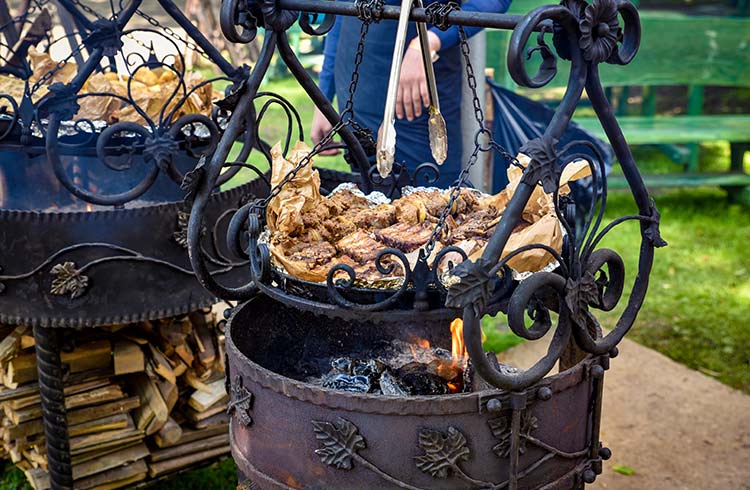
5. It's easy to get back to nature in Latvia
One of Europe’s greenest countries, around 50% of Latvia is wilderness. Add to this 330mi (530km) of woods bordering the Baltic coastline, and Latvia is an ideal hiking and camping destination.
Designated campsites scatter the country, but unlike many places now, wild camping is still allowed in Latvia which makes getting back to nature here much more of an adventure.
While coastal hiking is one of the best things to do in Latvia, a great day trip from Riga is the Great Kameri Bog in the Kameri National Park. Bogs are one of Latvia's most significant natural resources, and many are protected areas of EU importance.
Less than an hour's drive from Riga, on The Great Kameri Boardwalk we crossed the elevated moss marsh through a landscape of peat moss, fragrant wild rosemary, pines, and small lakes.
The wooden boardwalk runs in two arcs. The shorter arc a 0.93 mi (1.5km) walk and the longer arc a 2.2 mi (3.7km) walk with an observation platform that offers magnificent views of the bog from above.
One of the most picturesque landscapes in Latvia, The Great Kemeri Bog is a favorite sunrise and sunset spot for photographers throughout the year. Another thing, in hindsight, we wish we knew about Latvia.
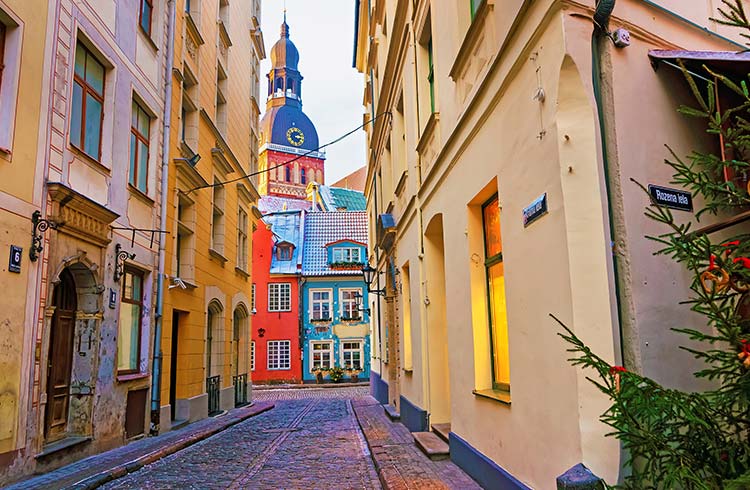
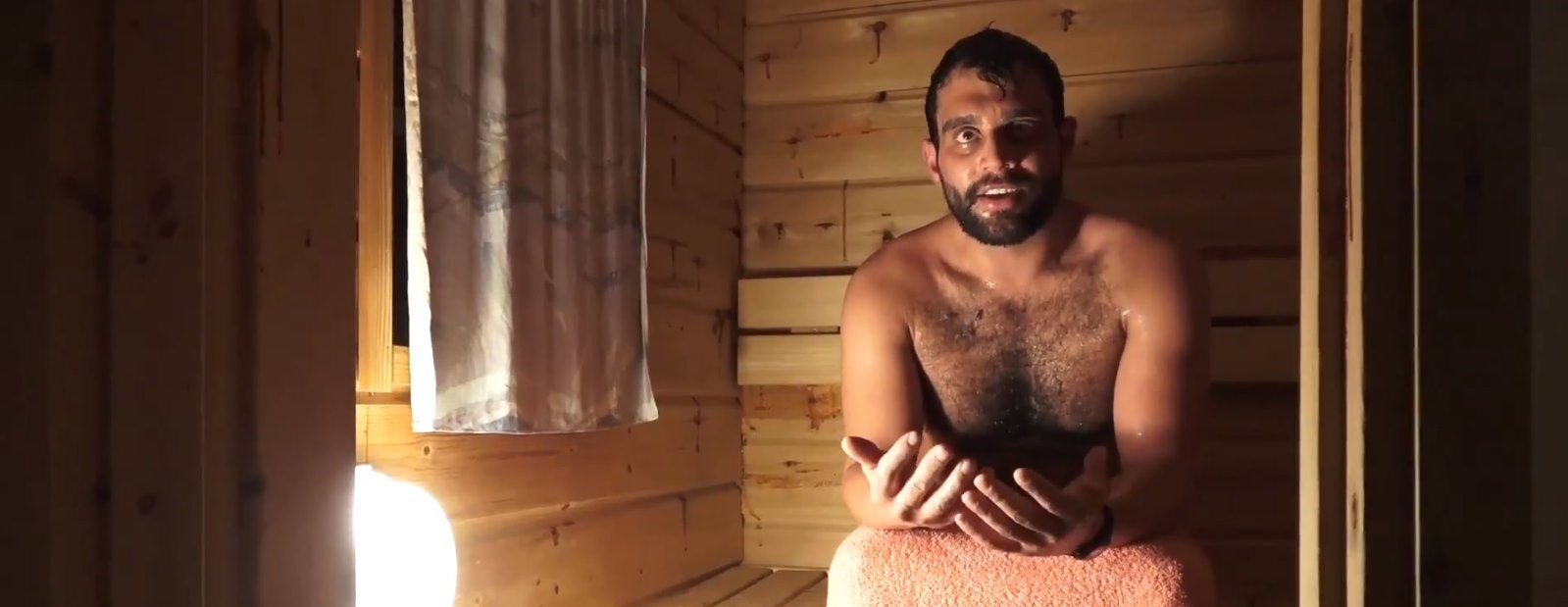
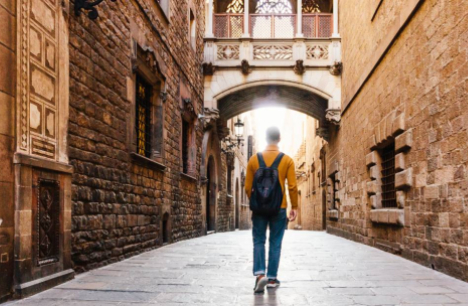
18 Comments
Lovely article.
The only correction: Latvia is in Northern Europe not Eastern.
Kameri = Kemeri or Ķemeri
It's fascinating to know the description of Latvia,how I wish I get the chance to do my post doctoral fellowship there.l will learn alot n transform the society through cultural borrowing.l salute every individual who has been to Latvia
Is this article a JOKE!!!
Dear Roy,
This article is NOT a joke and I myself am so glad someone took the time to really appreciate Latvia for what it is. Latvia is a BEAUTIFUL country that I wish more would give a chance to visiting it,,, unfortunately everyone prefers to go to a more popular tourist spot. I myself have been there many times as I, too, am Latvian. In my experience, I've never travelled alone in the streets of Riga and while people in Latvia are not overly rude, I think every experience is different and while the authors of this was great, I wouldn't want people to go there with the same expectations. Things that I enjoy most when going there are the bog trails, spending a night or two on the beaches, going on trails where you don't wear shoes (there's one in Sigulda) and walking around looking at the building which each contain so much history. Latvians have a lot of different celebrations especially during the summer (midsummer is a HUGE one as well as every town has its own special activities for their anniversary, the biggest ones I've been to have been in Riga and in Cesis). So before you go there, make sure to see if you'll be visiting during these festivities because they would be something very fun to attend to and there, you can always buy tornado potatoes (and those alone are worth the trip.)
I will like to visit Latvia and see for myself
I have been to Europe quite a few times, unfortunately not to Latvia. However, visiting there is now a priority on my list. A linguist and language instructor by profession I have begun learning Latvian which I find a beautiful language. The Latvians I have met on travels and in the USA have all been very friendly folk.
Am Samuel, a Kenyan. Wishing to know the catholicism its presence in Latvia, if possible you can send some catholic liturgical songs. Some cultural books that expound the latvian culture, way of life; food, hospitality, languages. Above all is there a common seminary for catholic seminarians in Latvia? Patiently waiting an affirmative. Many blessings.
Thank you so much for your information about Latvia.
A place to be I'm coming there to get it test
If you are non-white, your experience may differ.
Maybe just a series of extremely bad luck, but I wouldn't give it another try.
Luckily, there are other countries with great beaches, wild nature and ..ehm.. food.
Can I tour the Stolichnaya Distillery ?
My grandpa was born in Latvia. I have family there I’ve never met. Would love to go there sometime.
I love to visit Latvia as a tourist.
This article about Latvians is completely funny. Latvians, majority of them are not friendly people. They are rude, racist, never smile, hate when you try to engage in conversation with them, cold, dry and less livable nation I ever met. They don't even like each other. I find Russians more friendly that live there but Latvians it's like you went to see prisoner guard
I want to see Latvia for myself. My twin Grandsons (4) are mixed with a Jamaican / English father K (black) and a Latvian mother E (white). She is as cold as ice, pretty when she has make-up on, but looks very miserable like the world is on her shoulders. I have heard some negative things about Latvia, but before I believe them, I would like to experience a small part of Latvia for myself. I had the privilege of meeting E parents and they could not be more friendlier. They were so warm and appeared accepting of us as we share the same grandchildren. E's father he was down to earth, kind, thoughtful and attempted to speak or learn a little English. So next year 2025, we are planning on visiting and staying in Riga with our grandsons. I hope we enjoy ourselves and get to meet Latvian people who are kind and friendly and I will report back here when we return.
Latvia is beautiful country which I wish to live,work and enjoy nature.
I like to visit lativa and work there, admired so much,is the best ever,good place to work, friendly country,good environment, welcoming country especially visitors,so consider Evans,I'm Kenyan citizen by birth.but love lative the country to be.